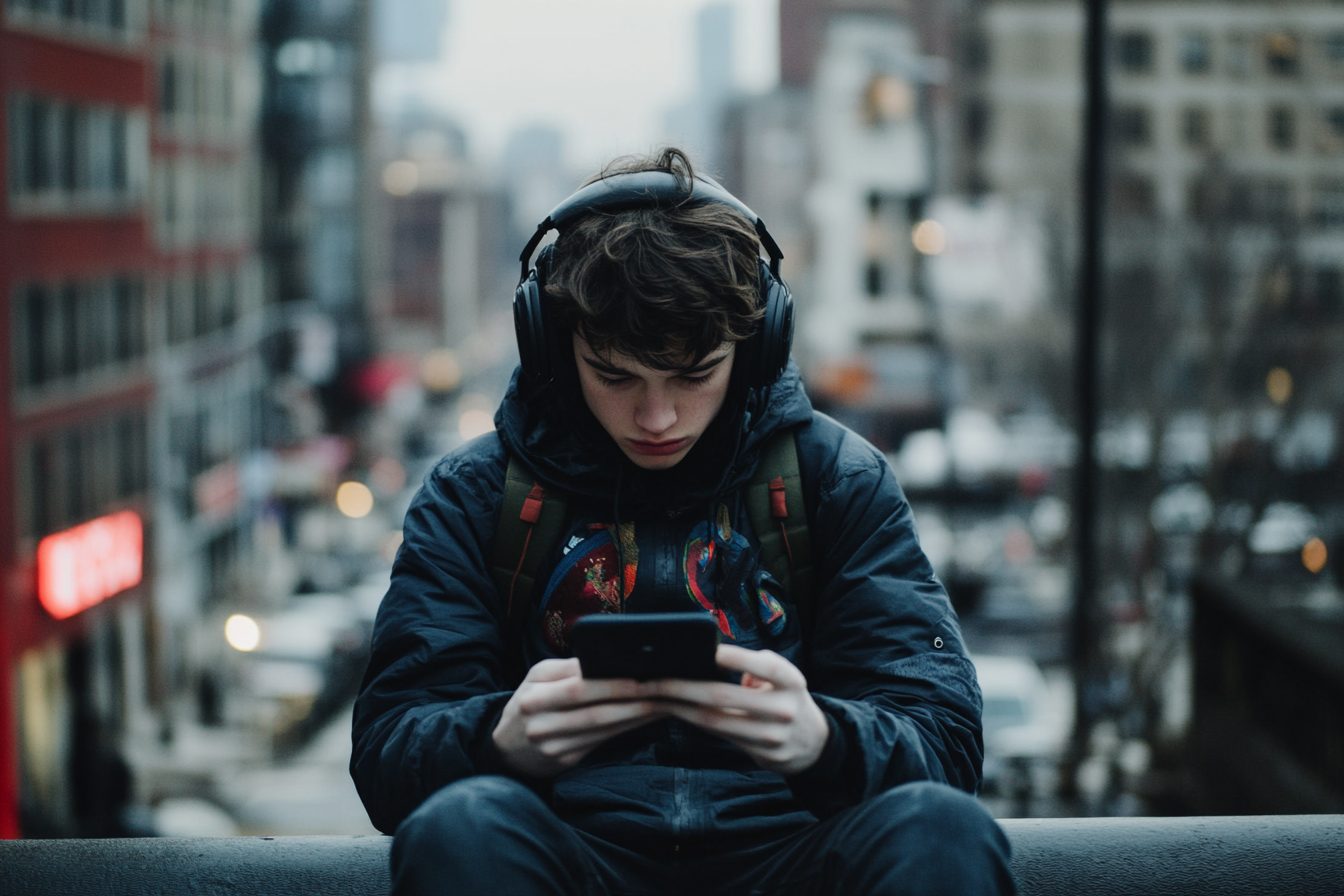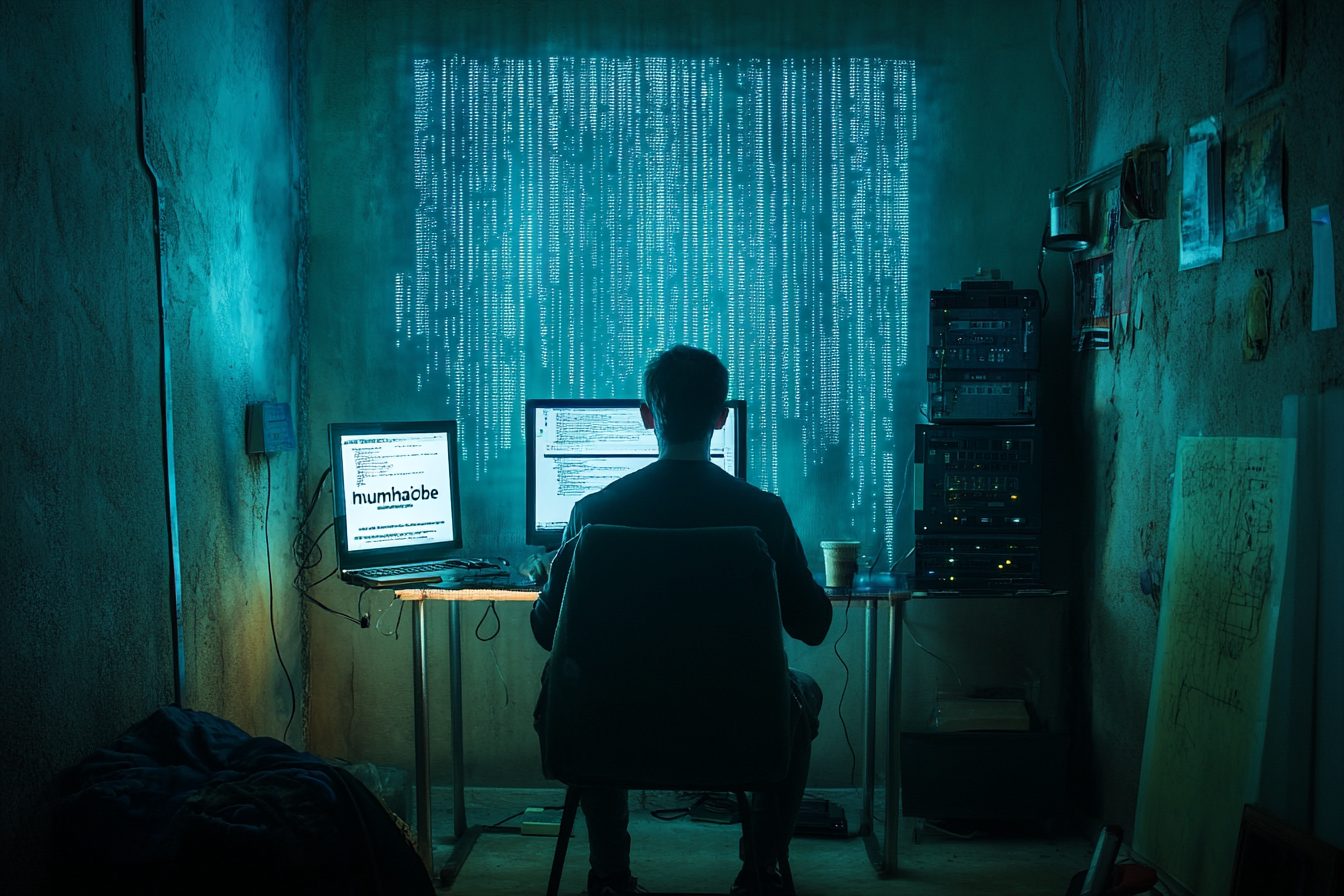Last Thursday at a private dinner, a colleague of mine was taken aback when I told her I did not follow the social media drama of a celebrity I had once heard of. That celebrity’s social media account is being discussed by so many people right now, I don’t understand how you missed it! Her fingers itched for her phone, desperate to tweet all about my blunder and shatter my bubble of lack of knowledge.
I self-assuredly told her something that stems from my guiding principles of the year: I plan to exercise selective digital ignorance for some time. For better or for worse, I don’t care for this. After listening to me, she appeared fascinated, even somewhat envious.
That is something I wish I could achieve, she said glancing at her phone, but having to put it back into her jacket. If I am being completely honest, I was not like this back in the day. I never missed out on anything for almost twenty years; I was permanently online and always informed thanks to my notifications systems.
People were routinely transformed into information addicts yearning to no end for information with the use of every advanced notification system. While working at [redacted major tech company], my main contribution came under the umbrella of “engagement features,” a convenient label for the psychological traps we designed to keep users perpetually checking, scrolling, and consuming. Success was measured by the degree we captivated attention, and, more importantly, the effectiveness of inducing a sense of missing out.
We made the consumption of information so addictively unnecessary without once evaluating the wellbeing of anybody including ourselves. The tipping point occurred at my daughter’s tenth birthday party. I was hyper focused on the cake, but I was consuming breaking news about some scandalous small time political event that would be forgotten in less than two days.
I caught a glimpse of my reflection in the window – leaning over my cellular device, perched but vacant during one of those fleeting moments of parental joy and nostalgia – childhood. Something broke. I left the phone in a drawer, came out of my room, and mingled with other people.
The comments I could have made with regard to the scandal did not cross my mind. My country was alright without my opinion, and I was able to genuinely enjoy that party. I was present, not drifting in a digital world.
“That joyfully ignorant experiment I mention started that weekend. Of course, I didn’t bother with stuff that did not impact my life, such as major events and decisions for the world at large. Paying attention to such details is not only counterproductive but unnecessary.”
“When was the last time looking into the news, for example, was not a 24 hour task?
Any decade before ours would simply require the reading of annually released newspapers and nightly news. While it might have felt like only an hour of attention of the matter, it did not require devices glued on us all day serving pointless so called “data”.Now, people seem to think there is such a thing as continually strolling through social media platforms and being bombarded with genuinely breaking news. People get to witness outpouring and angrily posted opinions and pitying them defending their perspectives anytime they serve a task yet are far removed from reality.”
“None of us possess the capacity to memorize passive information relevance.
It feels tempting to actually believe that there are valid compelling opinions scattered about everywhere regarding contemporary panic attachments or doomsays. Such attempts boil down to implanting fractures into already cluttered reasoning and consciousness.”
I started practicing selective ignorance with small steps – I deleted all social media and news apps from my phone. I restricted myself to a thirty minute news session in the morning and read only the headlines off articles.
Friends needed to text me directly if they wanted to grab my attention for an event that actually matters. The symptoms experienced during withdrawal were severe, and to my embarrassment, like what you’d expect in substanxe abise literature. I had constant anxiety about all the vital information I was definitely missing, and I desperately found myself reaching for the missing apps over and over again throughout the day.
Justifications for “quick checks” became far too easy to make. What unsettled me the most was figuring out how much of my social image was dependent on a constant stream of knowledge about breaking news and viral content. Without this knowledge, I resorted to physical conversation and found myself forced to do skits for the latest outrage or trending hashtag – which was distressing.
I realize now that living in a world where my self-worth was determined by tech platforms made me feel irrelevant and out of touch – which, ironically, was exactly THEIR goal. While discomfort was present, these benefits were much slower to arrive, but they would endure for a longer period. My cognitive abilities were the most immediate change.
Thanks to social media and the news, my attention was splintered. Without all of those, I could actually focus. Reading books wasn’t a battle against distractions anymore.
Conversations became richer without the constant notifications. Now, work projects that were previously difficult for me to concentrate on were effortless thanks to me paying full, natural attention. The next shift was the emotional one.
– I’m calling it a positive transformation here Create some form of identifying label to this change that follows your time goal530132_14727-0032-03-01227 base give change naturem slamdow, blindingly, mundane – this is an endless state boost courtesy of mega scrollable outraged optimized content. As my LinkedIn replies grew calmer, I noticed myself a lot type of nonresponsive, a newbie to that insane over sensitive world of stress The ever-present fury mixed with helplessness faded away and ended int he most spiriting attempts to feel by together try that not hardly increases smile feel soothing set up you’ll never position while praying like that releasing ladn live after doing soothing breathe device along with yoga step by step line when faced reward calmed phew is drunk form chit. The calm was vastly different from the anger and discomfort that accompanied phones.
This turned into the most remarkable and deepest benefit. It is so, as American media tehres named Neil Prisman marked the fatigue of insane consumption without rationale – what us citizens of the western world seem to be drowning in strived me able-the boundless confines – impossible to remove free of… There’s an over abundance f new blasting out endlessly named information that hundreds of them, while they seem totally free truly bombard us into the state we live.
I’m not saying we should cut ourselves off from the internet or entirely disinterest ourselves from what’s currently happening around the world. There exists some middle ground here – I prefer to consider knowing a piece of information from the point of whether it would help me survive in my world or enhance my quality of life. A natural calamity that is unfolding in my area?
It is almost guaranteed that it is important to me. Celebrity romance feuds? Probably not.
Important policies that will change my business for good? Sure! The latest social media drama?
I am NOT a part of it, so why should I care? A worrying situation that may impact weaker sections of the society? Might be significant.
Furor generated from a misunderstood statement on Twitter? Avoidable. This method of filtering information out and in is not solely for maintaining my mental health; it is also a way to take back a degree of freedom from algorithms whose aim is to capture attention and hold it hostage.
I was part of the technology world for a while and I helped design algorithmic recommendation engines whose sole purpose is violence. Their primary function is to attend to users’ clicks, fear, and even tribe-shaming. But more importantly, doing this further ensures there is zero regard to the holistic wellbeing of a person and society.
These systems disregard everything that matters: the truth, significance, and most importantly people’s sanity. Sometimes relatives bring up how I have chosen to ignore technology and ask if I have “gone Luddite.” While this is a good question, they completely miss the point. Ignoring technology has nothing to do with rejecting technology.
Rather, it is a proactive use of technology. Attention is our most precious cognitive resource, in this case, it is something that can be captured and monetized by the highest bidder. This experiment has had the strangest outcome and has impacted my relationships.
At first, friends were slightly offended by my boundaries. “Did you see what happened with…” was a question people often used that I had to decline. Surprisingly, as time went on, I began to form deeper bonds with people.
Without the abundant anger fueled from the news cycle, we were forced to speak about meaningful subjects. Furthermore, several friends have now begun creating their own versions of info boundaries which has created a small community of those who are content with being under-informed. The shift that I underlined above was also recognized by my children.
My daughter pointed out that I was “actually here” compared to before, which was a painfully accurate description of my previous attention being split everywhere. My son has started to realize the freedom from technology and began to leave his phone behind on our weekend hikes. The practice moves forward.
I can’t say I am perfect at having these boundaries. I do get swept away occasionally by the news. Social media still has a slight lure for me, perhaps because of the false promise of connection or entertainment.
The good thing is that it is now a conscious decision as opposed to an uncontrolled reaction. I no longer live in fear of missing out on something, I am now living a life where I decide what is worth my limited attention. To those who find selective ignorance interesting but are worried about becoming uninformed, here is a twist on Seneca’s wisdom: it is not that we do not have enough time to remain updated; rather we destroy it by focusing on consuming information that is irrelevant.
An average American spends more than two hours daily scrolling through social media and news sites. Think of the impact redirecting just half of those hours could have if spent learning disciplines that build real understanding instead of superficial awareness. I had a chat about a trending issue that went out of control the other day with a couple of friends and I had no clue about it.
Instead of lying or making excuses, I told them, “I must have missed that. Did I need to know about it?”. After I got a little bit of context, I understood it was one of those controversies where everyone talks about it but it doesn’t really have a substance to it other than being hyped up for a while.
“You’re not missing anything important,” my friend sighed. “That’s the secret,” I told him, “most of us aren’t missing anything so important. The real deal is, we’re all missing our real life whilst being surrounded by lesser significant matters.”
It’s quite refreshing to not know anything that the internet is telling you to consider sensational or having no opinion at all on every so-called ‘important’ breaking news.
It is liberating to ignore the chatter and focus on what actually matters such as building profound connections and initiating deep work among other things. I’m still working in technology, and I appreciate the immense amount of information the digital revolution has offered us. I have not retreated from modern society to live in a rural cabin; instead, I understand that the singular most difficult decision to make in an age designed for capturing and monetizing attention is deciding what to focus on.
The lost pleasure of missing out does not stem from ignorance itself, but from the ability to take back control over one’s thinking from mindless algorithms. So the next time someone’s eyebrows shoot up because you don’t know the latest gossip, try gently telling them, ‘I’m being selectively ignorant these days.’ You may discover they have been looking for permission to do exactly that.








